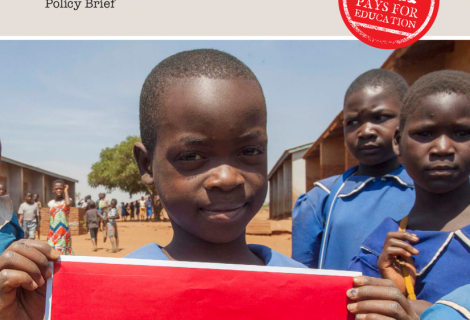
Missed Opportunity: how could funds lost to tax incentives in Africa be used to fill the education finance gap?
How much revenue do African governments lose from providing tax incentives, such as giving companies tax holidays and exemptions on paying taxes on import duties and value added tax? And if these precious national budget resources were set aside to fund quality, public education instead, how much greater could education spending be?
These questions are pressing today, as in sub-Saharan Africa alone, 34 million of children (including 18.6 million girls) aged 6 to 11 are out of school. Millions more, receive poor quality education, with low quality of teaching, poor sanitation facilities, unsafe environments and inadequate classroom equipment, making for poor learning outcomes.
Meanwhile, many of our African governments are failing to invest enough in education to ensure quality schooling for all children and are yet to meet targets they committed to internationally, of allocating 6% of GDP and 20% of total public expenditure to education. Governments need to urgently increase the size and effectiveness of their education budgets.
We believe much of the resources are already available to do this. Our research suggests that:
Governments in sub-Saharan Africa may be losing an estimated US$38.6 billion a year, or 2.4% of their GDP, to tax incentives. This is equivalent to nearly half (47%) of their current education spending. Having a much clearer pro-poor policy for granting incentives and using some of these resources to fund education could provide a much-needed and significant boost to education budgets across Africa.